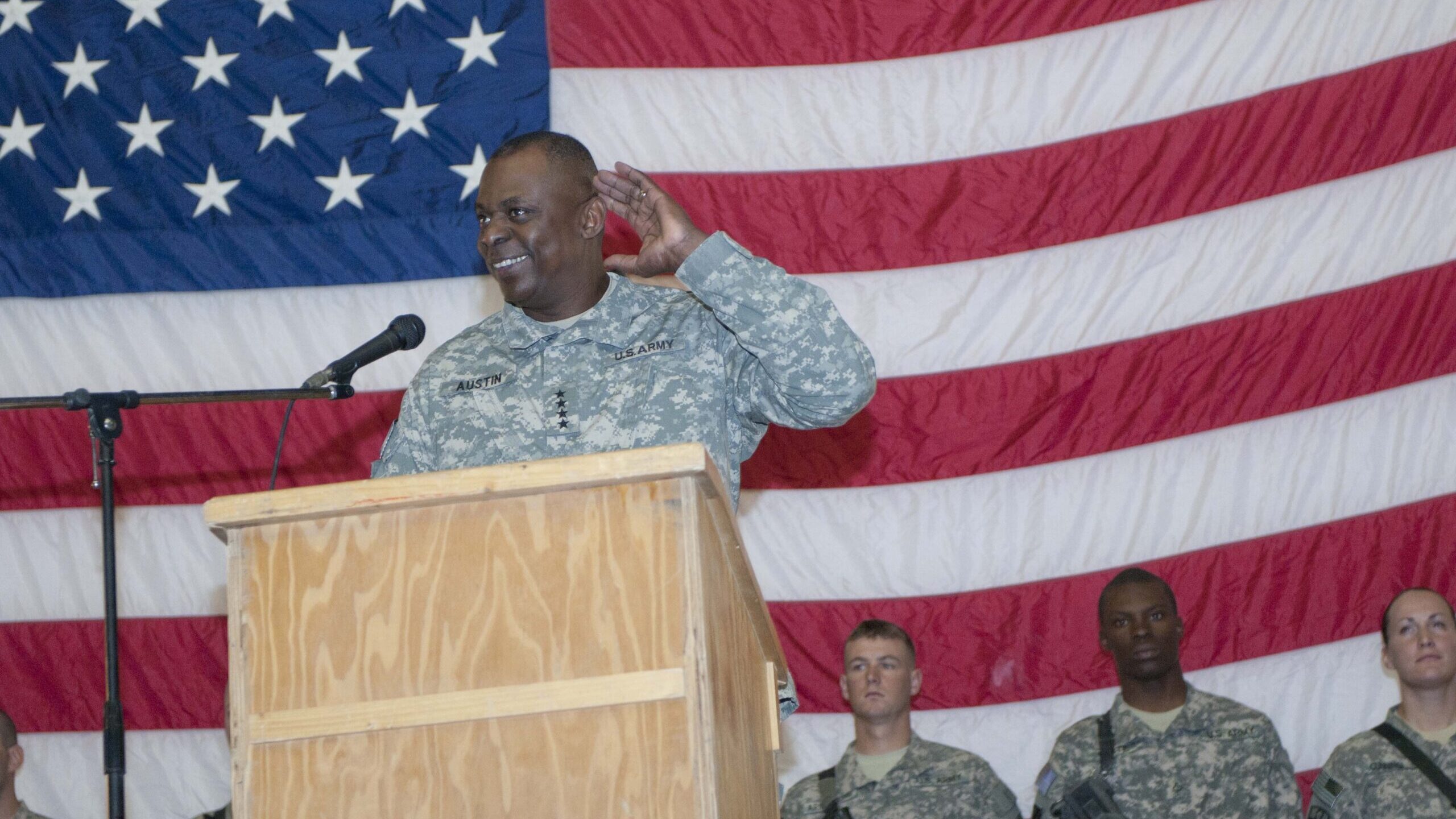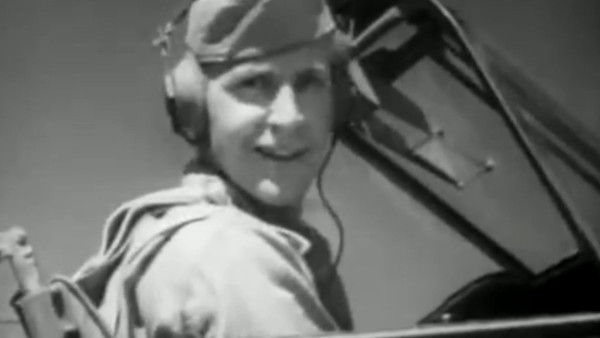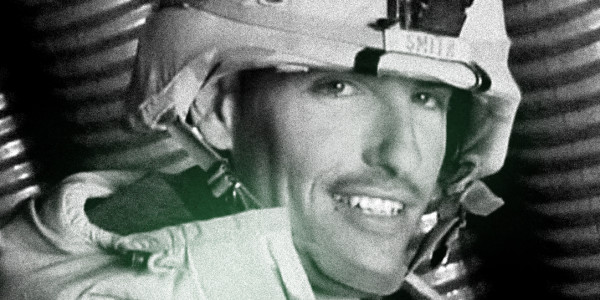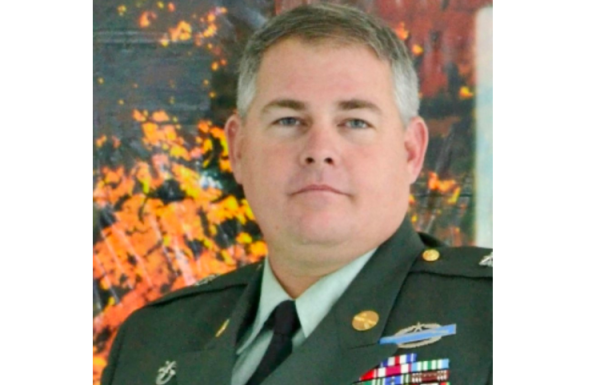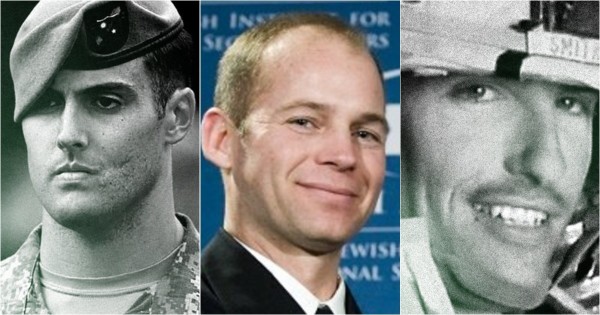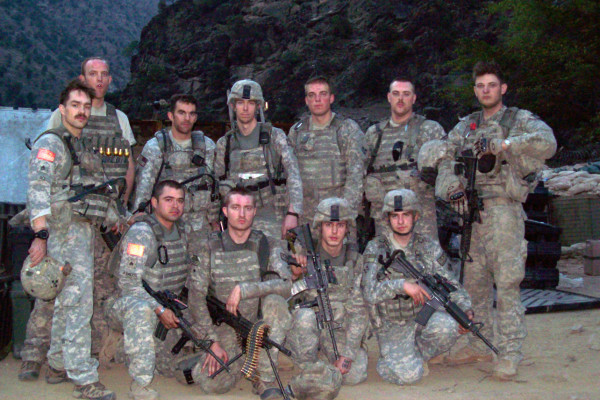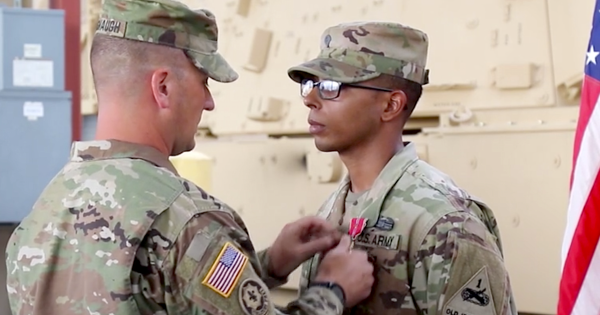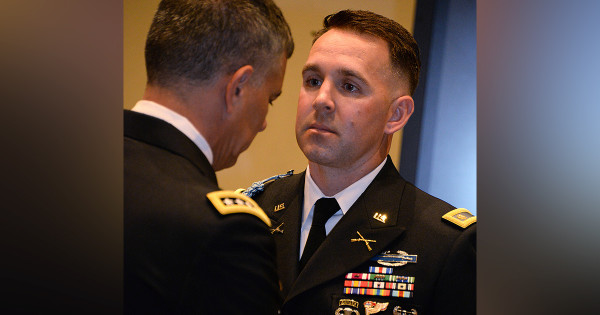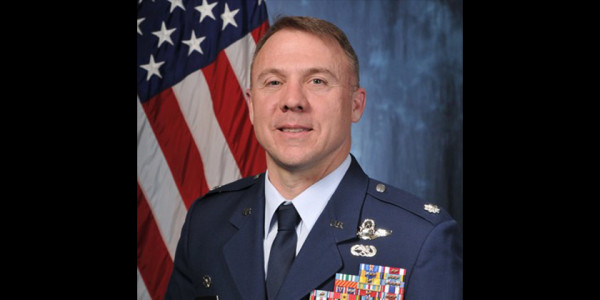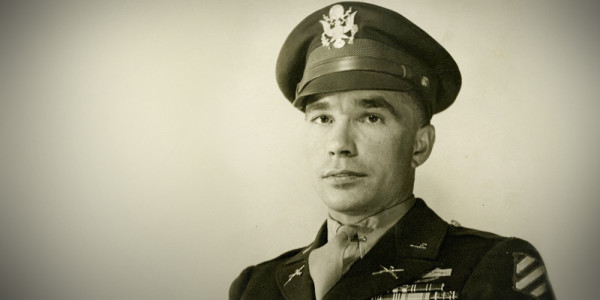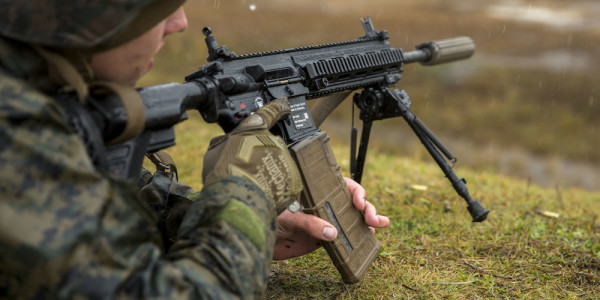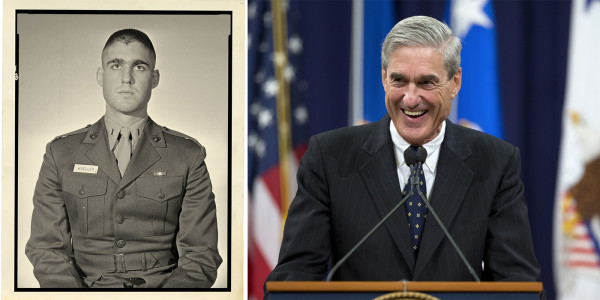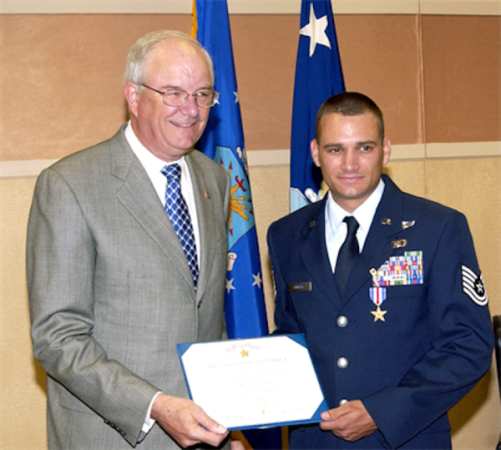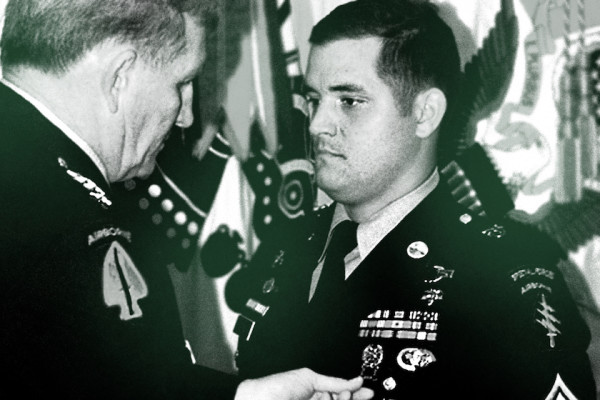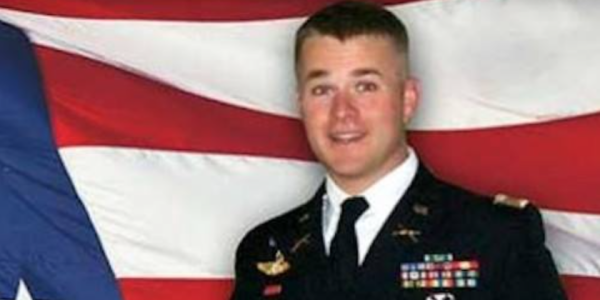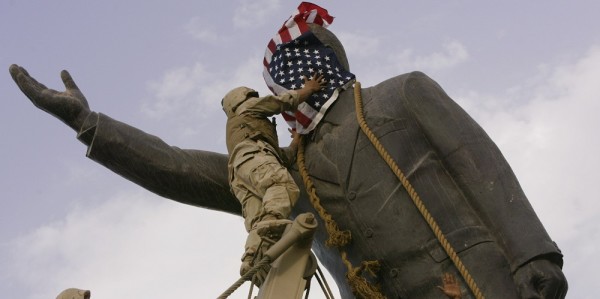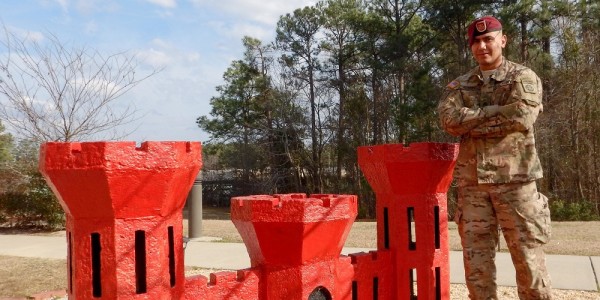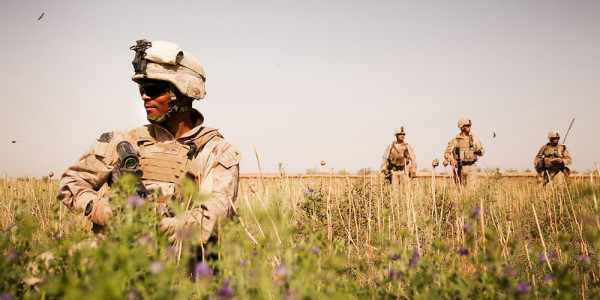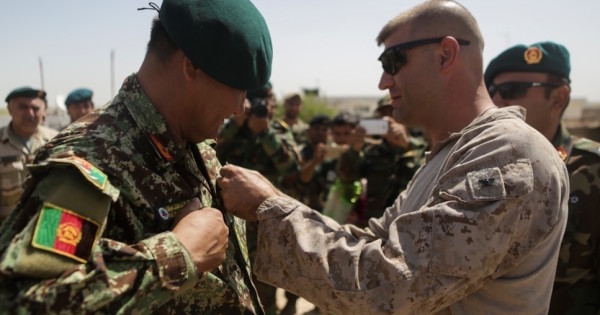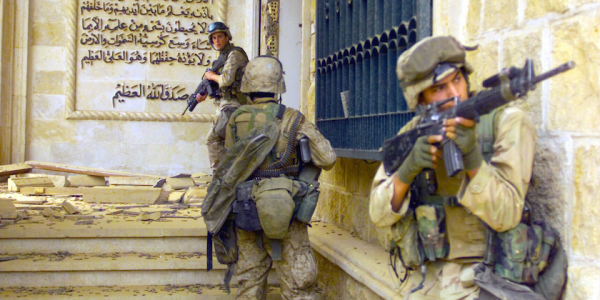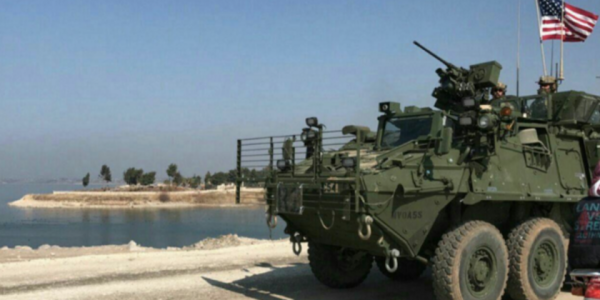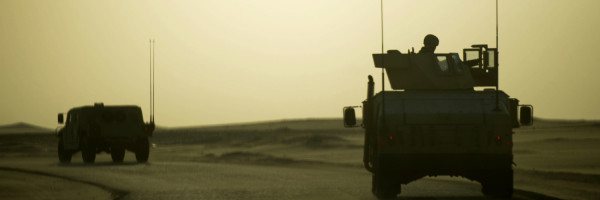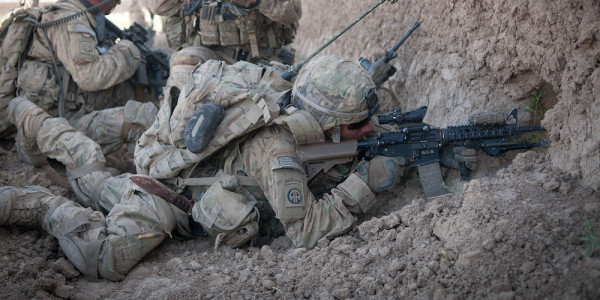During the opening weeks of the Iraq war, then-Brig. Gen. Lloyd Austin played a decisive role in the 3rd Infantry Division’s lightning march from Kuwait to Baghdad.
Serving as the assistant division commander of maneuver at the time, Austin led from the front and brought overwhelming firepower to bear on Iraqi forces, which were ultimately smashed in battle, according to the recommendation for Austin’s Silver Star award, which Task & Purpose obtained through a Freedom of Information Act request.
“While personally under indirect and direct fire numerous times, General Austin remained at the vanguard of every decisive engagement ensuring combat assets were available at the decisive point of each battle,” according to the award narrative.
The Silver Star is the third-highest military award for bravery and it is awarded to service members “who distinguish themselves through conspicuous gallantry and intrepidity at the risk of life above and beyond the call of duty.”
Austin is one of a few general officers who have received the Silver Star during the war on terrorism. Task & Purpose has only identified two others: Army Maj. Gen. Buford Blount, the 3rd Infantry Division’s commander during the Iraq invasion, who recommended Austin for his Silver Star; and Army Brig. Gen. William Grimsley, who received the award for his actions when he was a colonel leading the 1st Brigade, 3rd Infantry Division in March and April 2003.

Until now, little information about how Austin received his Silver Star has been publicly available aside from what is included in the award citation. The recommendation for his award provides a more complete picture of Austin’s actions in March and April 2003 that allowed the 3rd Infantry Division to move quickly and ultimately overwhelm the enemy.
When U.S. troops crossed the berm from Kuwait into Iraq in March 2003, their military commanders had assumed that their advance through Shiite areas in the southern part of the country would be relatively unopposed and the real fighting would take place closer to Baghdad. They were wrong.
American and other coalition troops ran into bitter opposition from Iraqi troops and irregular forces known as Fedayeen Saddam. The cities of Najaf and Nasiriyah — both south of Baghdad — were only captured after prolonged battles that involved fierce fighting.
The level of Iraqi resistance threatened to upend the U.S. timetable for taking key objectives. Then-Maj. Gen. James Mattis, who was leading the 1st Marine Division at the time, took the unusual step of relieving a regimental commander in the middle of combat operations for not moving quickly enough.
It was in this environment that Austin led soldiers with the 3rd Infantry Division, often while under enemy fire. As Operation Iraqi Freedom unfolded, Austin “was the heartbeat of the division’s attack from Kuwait to Baghdad,” according to the narrative for his Silver Star.

Austin coordinated airstrikes, indirect fire, and ground forces’ maneuvers to drive through the Iraqis’ defensive lines, according to his award narrative, which also credits him for making sure that soldiers had all the supporting fires they needed during the bitter ground combat at Najaf.
“After 5 intense days of fighting, thousands of enemy lay dead, hundreds of technical vehicles strewn across the battlefield, and the division poised for an attack into Karbala,” the narrative says. “BG Austin orchestrated hundreds of Close Air Support sorties, simultaneously controlled several units in contact while clearing fires for multiple artillery barrages and missile strikes. His ability to see the enemy, see the Division, and see the terrain, while issuing concise guidance was instrumental to the success of the Division.”
Austin continued to coordinate air and ground forces as the 3rd Infantry Division rolled north. He also recommended to his commanding general that the division push hard into Baghdad.
Ultimately, Austin forced the Iraqis to fight a battle for which they were unprepared and destroyed them, “Saving the lives of countless soldiers, while inflicting catastrophic damage on the Iraqi forces,” according to the award citation.

“With initiative, coupled with confidence and tempered by tactical savvy, BG Austin’s guidance and leadership enabled the commanders to command with never a doubt that the battlefield operating systems would be there on time and in the right location to defeat the enemy,” the award narrative says.
Austin was submitted for the Silver Star on April 18, 2003 by Maj. Gen. Blount and the award was approved by Lt. Gen. William Wallace, who led V Corps during the Iraq invasion, according to the documents obtained by Task & Purpose.
The Army was unable to locate the narrative for Blount’s Silver Star. His award citation says that Blount “continuously placed himself at the key point of the battle,” and that under his leadership, the 3rd Infantry Division attacked 350 miles across Iraq, “Winning each battle decisively, capturing Baghdad City and ultimately causing the complete destruction of Saddam Hussein’s regime.”
Other recipients of the Silver Star include Army Staff Sgt. Jeffrey M. Adamec, who destroyed four Iraqi armored personnel carriers in 2003 while he was under fire, and Sgt. 1st Class Alwyn Cashe, who gave his life in 2005 while saving his fellow 3rd Infantry Division soldiers from a burning Bradley Fighting Vehicle in Iraq. Cashe’s award was later upgraded to the Medal of Honor.
Read the award narrative for Defense Secretary Austin’s Silver Star below:
What’s hot on Task & Purpose
- A Marine was asked ‘how many people have you killed?’ His response was perfect
- Abandoned Air Force base with underground tunnels posted for sale on Facebook
- Air Force maintainers are getting new ‘janitor grey’ coveralls
- The Marine Corps is officially flying its ‘most powerful’ helicopter ever
- ‘Sidewalk,’ ‘Terminally Stupid,’ and ‘Meatloaf’ — How military pilots get their call signs
Want to write for Task & Purpose? Click here. Or check out the latest stories on our homepage.

